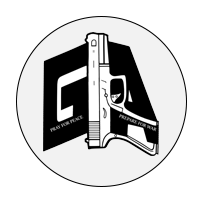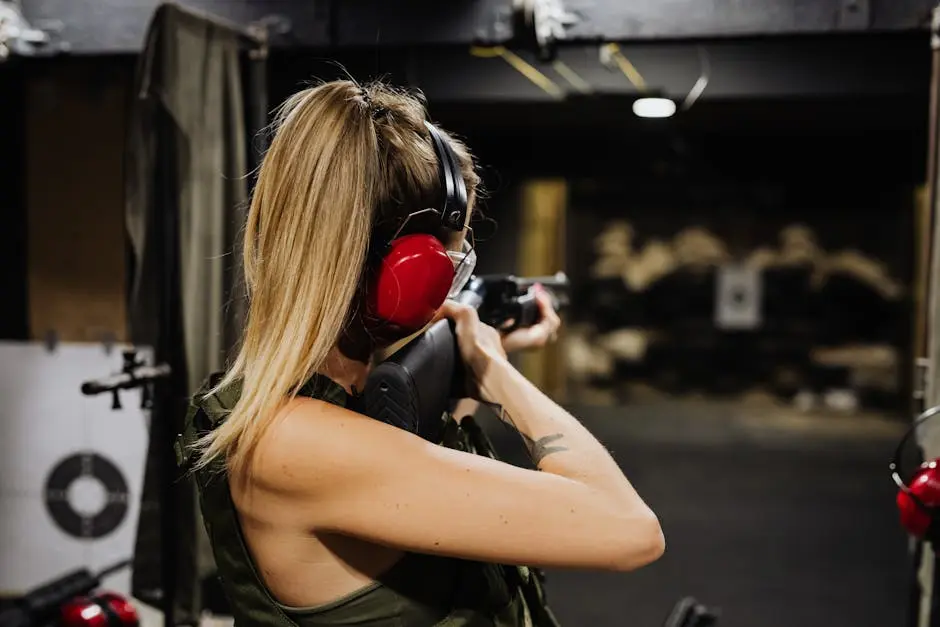Handling tactical rifles can be a rewarding experience, but it’s crucial to prioritize safety to prevent accidents. Whether you’re a novice or an experienced handler, understanding and applying essential safety tips can make all the difference. In this blog, we’ll discuss the must-know safety practices that will help keep you and those around you safe when handling tactical rifles.
Understanding the Basics of Tactical Rifles
Before diving into safety tips, it’s important to have a fundamental understanding of what tactical rifles are and their purpose. These firearms are designed for precision and functionality, often used by law enforcement and military personnel.
Tactical rifles, such as the AR-15 and AK-47, are different from regular rifles. They are built for versatility and can be adapted with various attachments like sights, grips, and suppressors. This versatility makes them suitable for a range of scenarios, from self-defense to sport shooting. If you’re looking for a comprehensive guide on the essentials of tactical firearms, consider exploring The Basics Of Tactical Firearms.
In addition to their adaptability, tactical rifles are known for their durability and reliability under various conditions. These firearms are engineered to perform well even in harsh environments, making them a trusted choice for many professionals. Before you start handling a tactical rifle, it’s beneficial to understand its inner mechanisms, features, and the best practices for its use.
General Safety Rules for Handling Firearms
Regardless of the type of firearm, certain universal safety rules apply. Always treat every firearm as if it is loaded, never point it at anything you do not intend to shoot, and keep your finger off the trigger until you are ready to fire.
These basic safety principles are vitally important when handling tactical rifles. Following the 4 Rules of Gun Safety ensures you maintain a safe environment for yourself and others. For instance, a key rule is to always be aware of your target and what lies beyond it, minimizing the risks of unintentional damage or injury.
Beyond these primary rules, remain conscious of your surroundings at all times. Whether you’re at the range or in a more dynamic environment, maintaining situational awareness can help prevent accidents. If in doubt, always err on the side of caution. The principles of firearm safety should be second nature to every tactical rifle user.
Safe Storage Practices
Proper storage of tactical rifles is key to preventing unauthorized access and accidents. Use a gun safe, ensure the firearm is unloaded before storage, and store ammunition separately. Educate household members, especially children, about the importance of not handling firearms without supervision.
Investing in a high-quality gun safe or a lockable gun cabinet is essential for safe storage. It not only protects your firearm from theft but also ensures that it is kept out of reach from those who should not have access. Remember to regularly check your storage systems for any signs of tampering or malfunction.
Additionally, make it a habit to perform spot checks and verify that firearms are stored correctly following each use. Incorporating routine checks into your safety protocols can further minimize risks and instill a disciplined approach to firearm storage within your household.
The Importance of Regular Maintenance
Regular cleaning and maintenance of your tactical rifle ensure it functions correctly and safely. Familiarize yourself with your rifle’s manual for specific maintenance instructions and check for any signs of wear or damage that might impact its safety or performance.
Neglecting the maintenance of your firearm can lead to malfunctions, which can be dangerous during critical moments. Always conduct thorough cleaning sessions after each use, paying special attention to the barrel, action, and other moving parts. Utilizing appropriate cleaning kits and following step-by-step manuals can make this process easier and more efficient.
In addition to cleaning, regular inspections are paramount. Look for any cracks, rust, or parts that seem worn out. If you discover any issues, address them immediately, whether through repairs or professional servicing. Keeping a well-maintained rifle not only enhances your performance but also drastically reduces the risk of mishaps.
Proper Handling Techniques
Learn the correct way to hold, aim, and fire your tactical rifle. This includes understanding your rifle’s weight distribution, recoil management, and proper stance. Training and practice are essential to maintaining safe handling practices.
Proper handling begins with mastering the right stance. Whether you prefer the Weaver stance or the Isosceles stance, your body position should ensure stability and control over the rifle. This base will help you manage recoil effectively, especially when firing multiple rounds in quick succession.
Beyond stance, grip plays a crucial role. Your grip should be firm yet controlled, allowing you to move the rifle efficiently without compromising accuracy. Regularly practicing at a range or through virtual shooting simulators can help refine these techniques, ensuring you’re always prepared for real-life scenarios.
Training and Continuous Education
Taking professional training courses can significantly enhance your understanding and handling of tactical rifles. Continuous education on new safety practices and advancements in technology can also keep you informed and prepared.
Professional training offers hands-on experience that’s vital for mastering the use of tactical firearms. Courses often cover everything from basic handling and shooting techniques to advanced tactical operations. Engaging in regular training builds muscle memory and boosts confidence, making you a more effective and responsible handler.
Stay updated with the latest technologies and safety practices in the field. Participating in workshops, seminars, and subscribing to reputable firearms safety resources will keep your knowledge base fresh and your skills sharp. A commitment to lifelong learning in firearm handling is key to maintaining peak performance and safety.
Understanding Legal Responsibilities
Owning and handling tactical rifles comes with legal responsibilities. Ensure you are aware of, and compliant with, local laws and regulations regarding firearm ownership, usage, and transportation. This knowledge helps prevent legal complications and promotes responsible gun ownership.
Different states and municipalities have varied regulations concerning the ownership, carrying, and use of tactical rifles. Familiarize yourself with these laws to avoid inadvertent legal violations. For instance, some areas may have restrictions on the types of modifications you can make to your rifle or limitations on carrying it in public spaces.
Additionally, ensure you have the necessary permits and licenses required for owning and transporting your firearm. Regularly check for updates in legislation that might affect your legal responsibilities. Adhering to these regulations not only keeps you compliant but also reflects your commitment to responsible and lawful gun ownership.
Stay Safe and Responsible
By adhering to these essential safety tips, you can ensure that your experience with tactical rifles is both enjoyable and secure. Always remember that safety comes first, and taking the time to follow these guidelines can prevent unnecessary accidents and enhance your skills responsibly. Stay safe and happy shooting!


